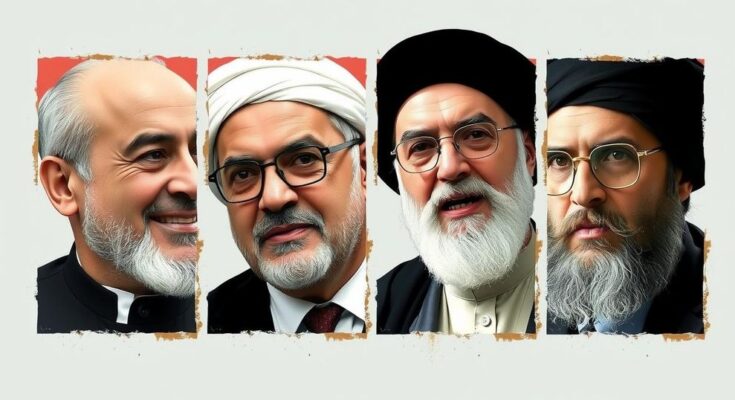General Joseph Aoun’s election as Lebanon’s president indicates Hezbollah’s diminishing power and reflects a significant geopolitical shift. Aoun, with international backing, aims to stabilize Lebanon amidst ongoing challenges. His presidency faces pressing tasks, including forming a government and addressing security issues, while maintaining high public expectations for reform and reconstruction.
Lebanese political commentators assert that Hezbollah’s inability to secure the presidency for its chosen candidate, Suleiman Frangieh, marks a substantial setback for the terror group and its Iranian backers. After a protracted election delay of 26 months, Hezbollah faced disappointment as Frangieh withdrew his candidacy to support General Joseph Aoun, who has garnered the backing of the United States, France, Saudi Arabia, and various Arab nations. This shift evidences a broader regional dynamics shift, complicating Iran’s influence in Lebanon.
Israeli military actions recently contributed to resolving Lebanon’s prolonged political impasse, allowing for Aoun’s election. Following this development, senior diplomats from Gulf countries are anticipated to visit Beirut to engage with the new president, with Aoun planning an official trip to Saudi Arabia, where he received a personal congratulatory message from Crown Prince Mohammed bin Salman. Aoun is now tasked with addressing immediate priorities, including maintaining the ceasefire in southern Lebanon and forming a stable government.
Under the interim leadership of Hassan Odeh, the Lebanese army seeks to appoint a permanent chief of staff to oversee the stabilization efforts. Aoun has committed to ensuring the complete withdrawal of Israeli troops from Lebanon, adhering to the terms outlined in the ceasefire agreement. His administration faces mounting pressure to create a new government, moving beyond the current interim framework led by Najib Mikati and supported by UN Resolution 1701.
During his inaugural address, Aoun vowed to address skepticism surrounding his capability to neutralize Hezbollah’s military strength, responding to demands from Lebanon’s political opposition. A pressing challenge will be curbing the flow of arms and funds from Iran to Hezbollah, particularly through Beirut’s airport, a critical conduit for these supplies. In addition, Israeli officials have indicated concerns that Aoun’s election may prompt increased international pressures on Israel to enact a full withdrawal from southern Lebanon, risking complications in Aoun’s domestic standing.
Reports suggest that US Special Envoy Amos Hochstein has assured Lebanese leaders of Washington’s commitment to guarantee Israel’s withdrawal before the expiry of the ongoing ceasefire. Despite widespread opposition from parliamentarian factions, Aoun’s election is viewed through the lens of significant international influence upon Lebanon’s political landscape.
Aoun now bears the immense responsibility of leveraging international partnerships to shepherd Lebanon towards a more stable future. Nevertheless, he is anticipated to face continued resistance from factions such as Hezbollah and the Shi’ite Amal movement, which have reportedly secured assurances for crucial roles in the new administration. The public’s expectations for Aoun are elevated, with many citizens hopeful for construction towards stability and reform, although the political environment remains exceedingly volatile, laden with obstacles.
The political climate in Lebanon has been historically tumultuous, characterized by sectarian divisions and the influence of various political factions and foreign entities. The election of a president in Lebanon represents a significant event in the nation’s governance, particularly given the role of groups like Hezbollah and their affiliations with Iranian interests. Hezbollah, designated as a terrorist organization by many nations, has sought to maintain its influence within the Lebanese political framework. The shifting dynamics illustrating the interplay of domestic factions and international pressures play a crucial role in shaping Lebanon’s political landscape, particularly in light of recent conflicts and the broader regional scenario.
In summary, General Joseph Aoun’s election as Lebanon’s president signifies a critical turning point, reflecting a decline in Hezbollah’s influence and potential shifts in the region’s political landscape. Aoun’s administration faces substantial challenges as it seeks to stabilize Lebanon and navigate complex domestic and international pressures. The coming months will be crucial in determining whether Lebanon will embark on a path toward genuine reconstruction and reform or remain mired in its historical pattern of instability.
Original Source: www.thejc.com




